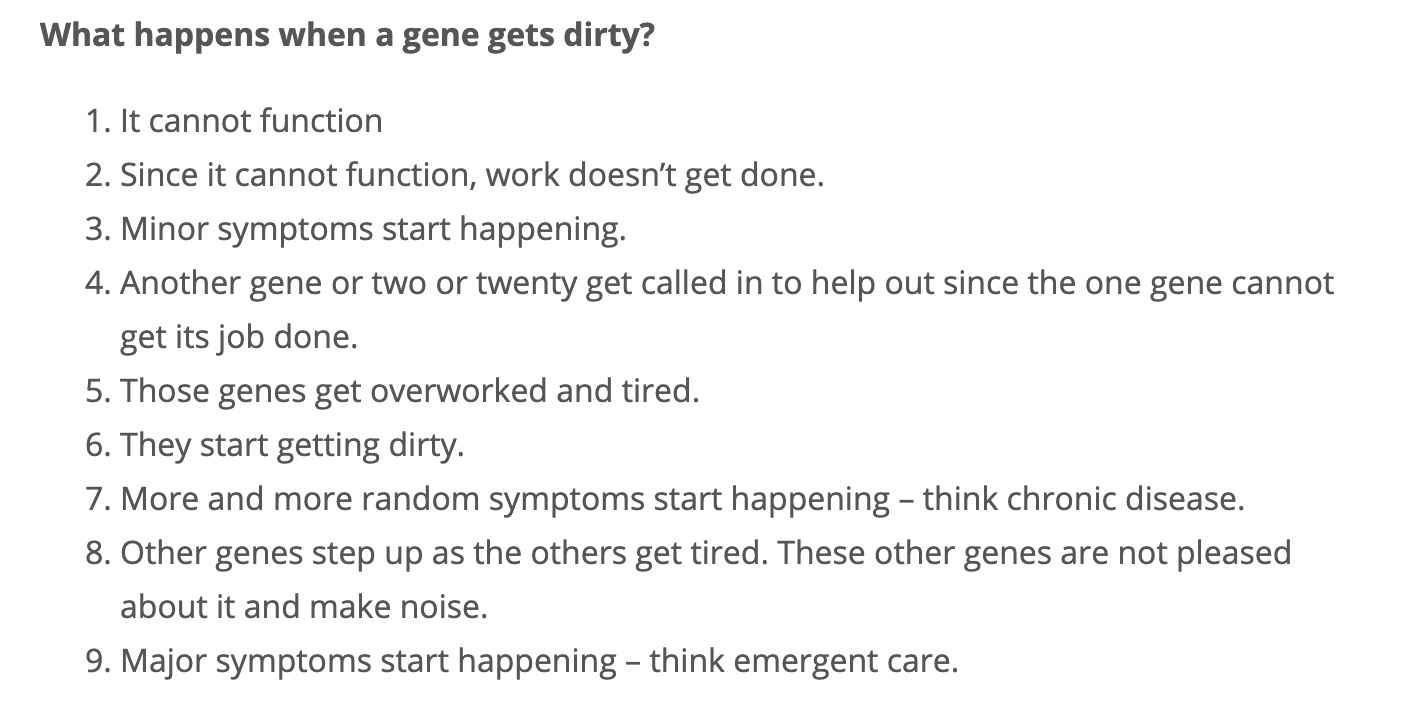Dr. Ben Lynch’s book Dirty Genes (available on Amazon as an ebook) hit the market a few years ago. It started an alternative health storm of people obsessing over cleaning up their genes. This book has prompted confusion and questions for many of my readers and members.
What are ‘Dirty Genes’?
The main claim of the book is that some genes aren’t working optimally. They are ‘dirty’ and need to be ‘cleaned’.
From Dr. Lynch’s website, he explains that:

It’s important to be clear about this, genes don’t become overworked and tired. Genes are segments of DNA transcribed into mRNA and translated into proteins. They don’t tire. And they don’t get dirty.
I understand that Dr. Lynch is trying to create a metaphor here. But…The book contains a lot of scientifically inaccurate information.
Dirty Genes Protocol:
In his original book, Ben Lynch focused only on MTHFR, DAO, COMT, MAOA, GST, NOS3, and PEMT. In the Bonus Chapter of Dirty Genes, Ben Lynch explains that there are more than just seven important genes.
He gives readers the “Clean Gene Protocol” which includes Soaking and Scrubbing all your genes. Again, this is some kind of metaphor referring to genes not functioning correctly because they are dirty.
His protocol includes:
- Diet: removing foods that are bad for your genes and adding nutrients
- Exercise: just the right amount
- Sleep: deep sleep supports your genes; caffeine is bad
- Toxic exposure: remove sources of toxic exposure
- Stress relief: to help the genes in your methylation cycles not be tired?
All of this is standard, healthy advice. I agree with it. We should all get some exercise, eat right, sleep well, avoid excess stress, and remove toxicants from our environment.
Where I disagree with his metaphor is in the sweeping generalizations he includes along with scientific inaccuracies. Eating gluten, dairy, and tomato sauce doesn’t cause a mess for your genes to clean up. And your genes certainly don’t get pissed at you.

Next, he explains the ABCs of Clean Genes. He goes through the alphabet, coming up with something for every letter. For example, we should Breathe all the time, and Chew our food 20 times each bite.
Nuggets here include that your genes “are calm, relaxed, and conserving energy” when you laugh. (Yes, that did make me chuckle.) Again, genes are segments of your DNA. They don’t have energy or emotions.

Conclusion:
It is easy to criticize and point out flaws (especially in this book), but I do know that writing is hard work. I’m sure Dr. Lynch has the best of intentions with his work.
I would encourage you to learn more about how your genes actually work and check out articles that explain real research.
Here are a few to get you started:
- Cortisol and HPA Axis Dysfunction
- Boosting NAD+ levels to fight the diseases of aging
- Top 10 Genes to Check in Your Genetic Raw Data

